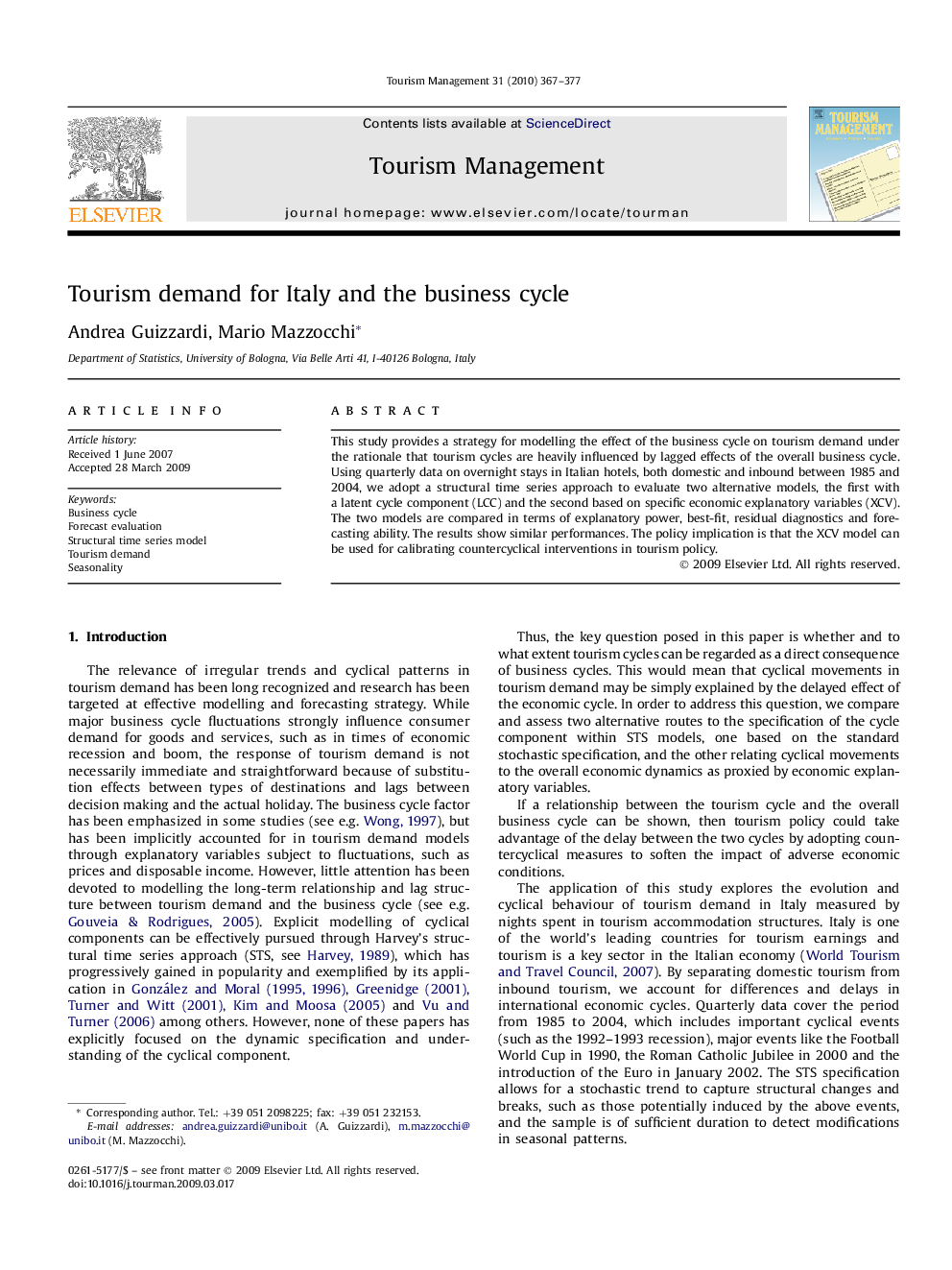| Article ID | Journal | Published Year | Pages | File Type |
|---|---|---|---|---|
| 1012845 | Tourism Management | 2010 | 11 Pages |
This study provides a strategy for modelling the effect of the business cycle on tourism demand under the rationale that tourism cycles are heavily influenced by lagged effects of the overall business cycle. Using quarterly data on overnight stays in Italian hotels, both domestic and inbound between 1985 and 2004, we adopt a structural time series approach to evaluate two alternative models, the first with a latent cycle component (LCC) and the second based on specific economic explanatory variables (XCV). The two models are compared in terms of explanatory power, best-fit, residual diagnostics and forecasting ability. The results show similar performances. The policy implication is that the XCV model can be used for calibrating countercyclical interventions in tourism policy.
